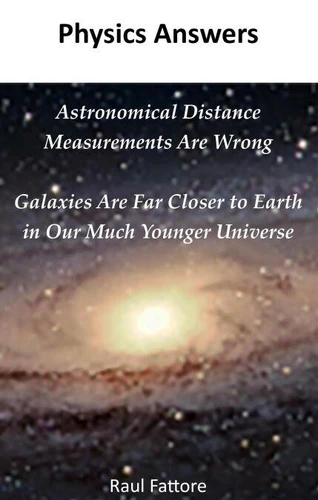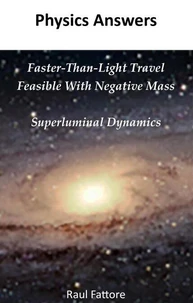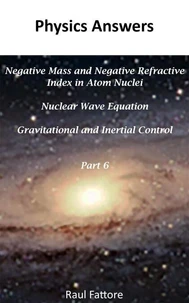Astronomical Distance Measurements Are Wrong - Galaxies Are Far Closer to Earth in Our Much Younger Universe
Par :Formats :
Disponible dans votre compte client Decitre ou Furet du Nord dès validation de votre commande. Le format ePub est :
- Compatible avec une lecture sur My Vivlio (smartphone, tablette, ordinateur)
- Compatible avec une lecture sur liseuses Vivlio
- Pour les liseuses autres que Vivlio, vous devez utiliser le logiciel Adobe Digital Edition. Non compatible avec la lecture sur les liseuses Kindle, Remarkable et Sony
 , qui est-ce ?
, qui est-ce ?Notre partenaire de plateforme de lecture numérique où vous retrouverez l'ensemble de vos ebooks gratuitement
Pour en savoir plus sur nos ebooks, consultez notre aide en ligne ici
- FormatePub
- ISBN8230219323
- EAN9798230219323
- Date de parution28/01/2025
- Protection num.pas de protection
- Infos supplémentairesepub
- ÉditeurIndependently Published
Résumé
Since astronomical distance measurements are wrong, this work ought to serve as a possible cautionary tale for all astronomy and cosmology colleagues, as well as for astrophysicists in general. The study reveals that the electromagnetic wave propagation from a rotating source does not follow a straight line but the Archimedes spiral trajectory, indicating that most astronomical distance calculations may be incorrect.
The research suggests that galaxies are closer to us than previously estimated, potentially indicating a younger universe. The difference between the Archimedes spiral arc length and straight-line estimates is small within our solar system but becomes more significant from Pluto. It is recommended to review all astronomical and cosmological distance and age data.* Does light follow a rectilinear path? * Are distance measurement methods of the "cosmic distance ladder" providing the right results? * Are galaxies really receding? * Do receding galaxies mean that the universe is expanding? * Can we better determine the age of the universe? * Could galaxies collide? All these questions are answered in the development of this study according to the suggested theories.
The research suggests that galaxies are closer to us than previously estimated, potentially indicating a younger universe. The difference between the Archimedes spiral arc length and straight-line estimates is small within our solar system but becomes more significant from Pluto. It is recommended to review all astronomical and cosmological distance and age data.* Does light follow a rectilinear path? * Are distance measurement methods of the "cosmic distance ladder" providing the right results? * Are galaxies really receding? * Do receding galaxies mean that the universe is expanding? * Can we better determine the age of the universe? * Could galaxies collide? All these questions are answered in the development of this study according to the suggested theories.
Since astronomical distance measurements are wrong, this work ought to serve as a possible cautionary tale for all astronomy and cosmology colleagues, as well as for astrophysicists in general. The study reveals that the electromagnetic wave propagation from a rotating source does not follow a straight line but the Archimedes spiral trajectory, indicating that most astronomical distance calculations may be incorrect.
The research suggests that galaxies are closer to us than previously estimated, potentially indicating a younger universe. The difference between the Archimedes spiral arc length and straight-line estimates is small within our solar system but becomes more significant from Pluto. It is recommended to review all astronomical and cosmological distance and age data.* Does light follow a rectilinear path? * Are distance measurement methods of the "cosmic distance ladder" providing the right results? * Are galaxies really receding? * Do receding galaxies mean that the universe is expanding? * Can we better determine the age of the universe? * Could galaxies collide? All these questions are answered in the development of this study according to the suggested theories.
The research suggests that galaxies are closer to us than previously estimated, potentially indicating a younger universe. The difference between the Archimedes spiral arc length and straight-line estimates is small within our solar system but becomes more significant from Pluto. It is recommended to review all astronomical and cosmological distance and age data.* Does light follow a rectilinear path? * Are distance measurement methods of the "cosmic distance ladder" providing the right results? * Are galaxies really receding? * Do receding galaxies mean that the universe is expanding? * Can we better determine the age of the universe? * Could galaxies collide? All these questions are answered in the development of this study according to the suggested theories.



















